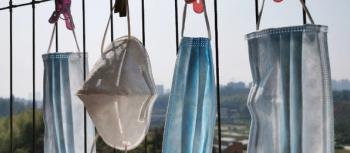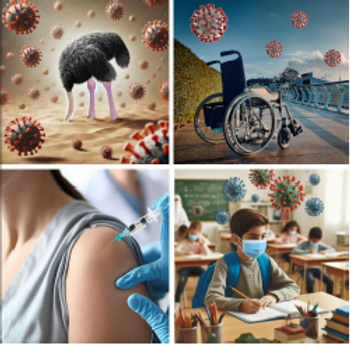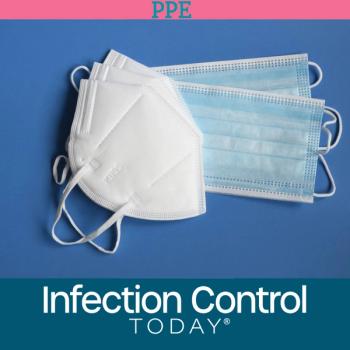
Face Shields Called Best Way to Protect Healthcare Workers From COVID-19
Face shields are durable and can be cleaned and reused repeatedly, thereby eliminating the problem of shortages.
It would be expensive. It would not be a perfect barrier. However, despite these drawbacks, investigators with Duke University Medical Center argue in a recent
“In a nutshell, the rationale of implementing a universal masking policy in hospitals is to limit the transmission of SARS-CoV-2 from patients to HCP, from HCP to patients and to other HCPs,” the article states.
That could be done with the personal protective equipment (PPE) that’s usually utilized (barrier gowns, N95 respirators), true, but face shields would be ideal. Face shields would not be hindered by the circumstances that make commonly used face masks sometimes problematic. “Face shields provide better coverage of the face, as compared to masks, thus reducing the risk of self-contamination,” investigators write. “Additionally, face shields are durable, can be cleaned and reused repeatedly. Given their simpler design, durability, and reuse potential, face shields are less likely to face shortages like face masks. Additionally, face shields do not impede facial nonverbal communication, can be worn concurrently with other face/eye protective equipment and do not impact vocalization.”
Face shields aren’t perfect, however. The absence of a good seal around the face could allow aerosol penetration. Also, they might cause fogging or glare. Further study into the utility of face shields as a way to implement universal masking needs to be done, the investigators encourage, but add that shields do seem to offer “a promising solution in a time of critical mask shortages.”
COVID-19 has forced some hospitals to expand their infection prevention measures like visitor restrictions, hand hygiene, and employee testing with universal masking for all healthcare professionals (HCPs). That means that HCPs must wear some sort of face mask at all times while on hospital premises.
Investigators cite case studies in which people who catch COVID-19 are asymptomatic at the time of testing. Shedding might occur before symptom outbreak. For instance, nearly half of the 712 people who tested positive for SARS-CoV-2, the virus that causes COVID-19, on the Diamond Princess cruise ship, showed no signs of the disease at the time of testing.
“An adequate supply of masks is an obvious prerequisite for implementing a universal masking policy,” investigators note. “Hospitals without an adequate supply of masks should continue to focus on measures such as extended use, reuse, and reprocessing of their existing supply of masks and respirators.”
Face masks can be lost or, worse, contaminated during long work shifts and actually increase the risk of getting COVID-19. In addition, they might encourage a false sense of security that leads to lax hand hygiene and social distancing. Investigators also note that since COVID-19 is so new, there’s a lack of data concerning how well masks work against it.
“Future studies are needed to examine the frequency of viral contamination of masks worn for long hours or multiple shifts, as are studies needed to compare rates of healthcare-associated SARS- CoV-2 in hospitals and long-term care facilities that do and do not utilize universal masking policies,” they conclude. “Finally, exploring other approaches such as universal use of face shields or more durable face masks could provide much needed scientific evidence related to the efficacy of universal masking polices or use of other barrier methods.”
Newsletter
Stay prepared and protected with Infection Control Today's newsletter, delivering essential updates, best practices, and expert insights for infection preventionists.




